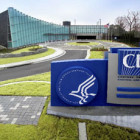
Following in the footsteps of the familiar movie maxim, “If you build it, they will come,” a new study found California teens that live in neighborhoods with lots of fast food restaurants eat lots of fast food. The study found that the average California teen lives or goes to school in an area with more than seven times as many fast food restaurants, liquor stores and convenience stores as healthy food options such as farmers markets and grocery stores. The unsurprising result: the average California teen is 18 percent more likely to eat fast food at least twice a week than teens who live in neighborhoods with more healthy options. All of that junk food leads to the intake of excess calories that often leads to obesity, diabetes and other health problems, according to the research. "We have put our children and youth in harm's way,” said Robert K. Ross, M.D., president and CEO of the California Endowment, which funded the study.






